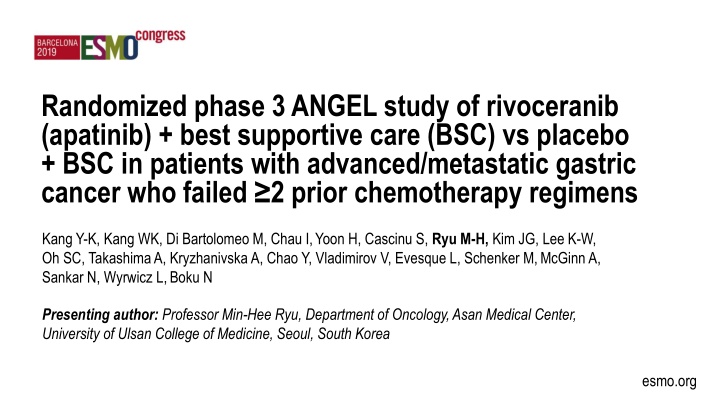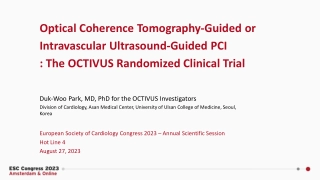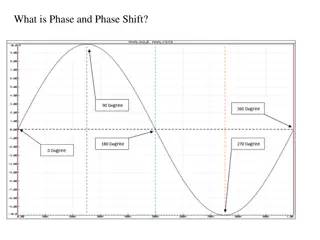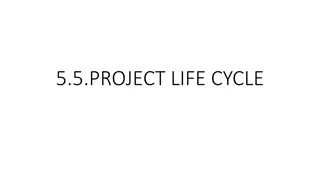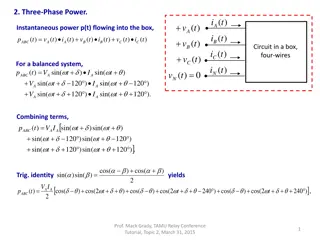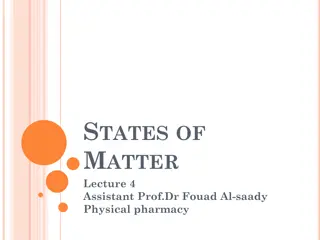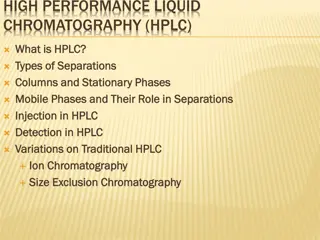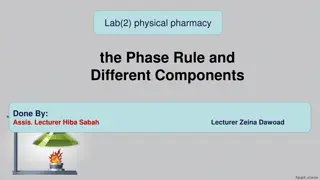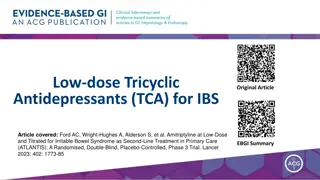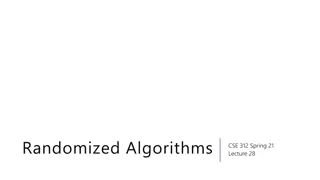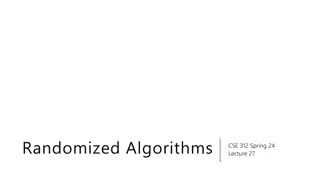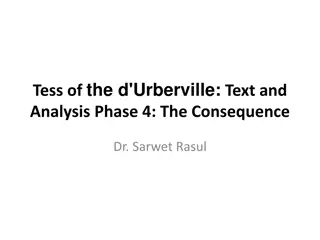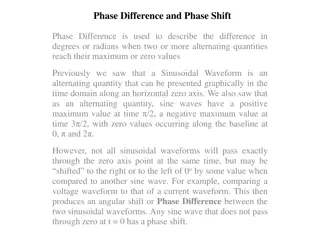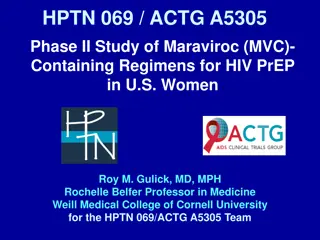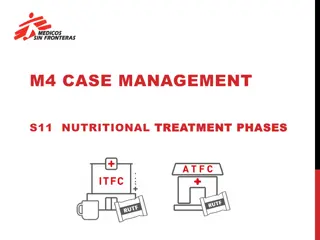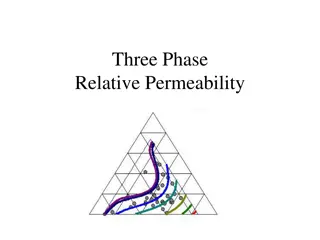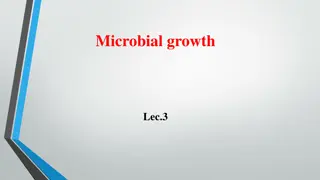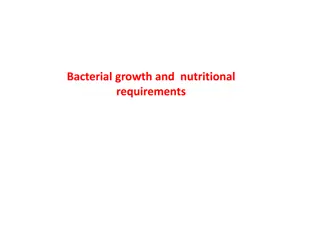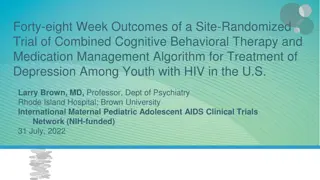Randomized phase 3 ANGEL study of rivoceranib
Rivoceranib (apatinib) is being studied in a global phase 3 trial for advanced gastric cancer patients who have failed prior chemotherapy regimens. The ANGEL study compares rivoceranib plus best supportive care versus placebo plus best supportive care in a randomized trial setting. Primary endpoints include overall survival, with secondary endpoints focusing on progression-free survival, objective response rate, and safety outcomes.
Download Presentation

Please find below an Image/Link to download the presentation.
The content on the website is provided AS IS for your information and personal use only. It may not be sold, licensed, or shared on other websites without obtaining consent from the author.If you encounter any issues during the download, it is possible that the publisher has removed the file from their server.
You are allowed to download the files provided on this website for personal or commercial use, subject to the condition that they are used lawfully. All files are the property of their respective owners.
The content on the website is provided AS IS for your information and personal use only. It may not be sold, licensed, or shared on other websites without obtaining consent from the author.
E N D
Presentation Transcript
Randomized phase 3 ANGEL study of rivoceranib (apatinib) + best supportive care (BSC) vs placebo + BSC in patients with advanced/metastatic gastric cancer who failed 2 prior chemotherapy regimens Kang Y-K, Kang WK, Di Bartolomeo M, Chau I,Yoon H, Cascinu S, Ryu M-H, Kim JG, Lee K-W, Oh SC, Takashima A, Kryzhanivska A, Chao Y, Vladimirov V, Evesque L, Schenker M,McGinn A, Sankar N, Wyrwicz L,Boku N Presenting author: Professor Min-Hee Ryu, Department of Oncology, Asan Medical Center, University of Ulsan College of Medicine, Seoul, South Korea esmo.org
Disclosures Professor Min-Hee Ryu Disclosures relevant to this presentation None Other financial disclosures/support Bristol Myers Squibb Daehwa Pharmaceutical Lilly MSD Novartis ONO Taiho
Background Rivoceranib (also known as apatinib and YN968D1) is an orally administered, highly selective tyrosine kinase inhibitor of VEGFR-2 with demonstrated efficacy and approval as 3rd-line treatment for advanced gastric cancer in China1 Phase I/II trials in Korean and US patients established the recommended dose of rivoceranib and demonstrated promising efficacy in patients with gastric cancer outside of China2,3 However, rivoceranib had not previously been evaluated in a global randomized placebo- controlled study The ANGEL study (Clinical trial registration: NCT03042611) was a multinational, placebo- controlled, phase 3 study of rivoceranib in patients with advanced gastric cancer in Asia Pacific, North America, and Europe 1. Li J, et al. J Clin Oncol 2016;34:1448 54 2. Kang YK, et al. Ann Oncol 2015;27:114 35 3. Sharma S, et al. J Clin Oncol 2015;33(suppl: abstr 2525)
ANGEL: a global, randomized, phase 3 study Follow-up period Screening period Treatment period 28 days from baseline After end of treatment 28-day cycles Rivoceranib + BSC Rivoceranib 700 mg qd, po Primary endpoint Overall survival (ITT population) Main eligibility criteria Advanced/metastatic adenocarcinoma of the stomach or gastroesophageal junction Secondary endpoints Progression-free survival Objective response rate Disease control rate Quality of life Safety 2:1 R Failure of 2 prior lines of chemotherapy Placebo + BSC Matching placebo to rivoceranib qd, po ECOG PS 1 Patients stratified by Geographic region (Asia vs North America/Europe) Disease measurability Prior ramucirumab use Line of therapy (3rd or 4th) Treatment given until disease progression, intolerable toxicity or withdrawal of consent Patients allowed to continue treatment after PD (at investigators discretion) Tumor evaluation by CT/MRI q2 cycles (RECIST 1.1)
Study statistics and conduct Primary endpoint: OS in ITT population Assumptions: median OS 6.5 months vs 4.7 months for rivoceranib vs placebo (HR=0.72) Required number of events and patients: 325 death events and 459 patients for 80% power with a two-sided alpha of 0.05 Interim analysis: safety and futility analysis planned and conducted after approx. 163 death events; recommendation by IDMC was made to continue without modification Final analysis: done with database lock on 30 May 2019 with 369 events
Study enrollment Russia Germany Poland Ukraine UK France Romania Italy USA Japan Korea Taiwan Study period: patient enrollment between Feb 2017 and Oct 2018 Sample size: 460 patients from 88 sites across 12 countries
Patient disposition Assessed for eligibility (n=610) Ineligible (n=150) Screen failure (n=133) Withdrew consent (n=13) Death (n=2) Other (n=2) Randomized (n=460) Allocated to rivoceranib + BSC (n=308) Treated (n=307) Not treated (n=1) Allocated to placebo + BSC (n=152) Treated (n=151) Not treated (n=1) Allocation Treatment ongoing (n=5) Study ongoing in follow-up (n=23) Treatment discontinued (n=124) Treatment ongoing (n=13) Study ongoing in follow-up (n=40) Treatment discontinued (n=255) Treatment status ITT population (n=152) Safety population (n=151) ITT population (n=308) Safety population (n=307) Analysis
Baseline characteristics (ITT population) Rivoceranib + BSC (n=308) Placebo + BSC (n=152) Total (n=460) Characteristic Median age, years (range) 60.0 (21.0 91.0) 61.0 (27.0 82.0) 60.0 (21.0 91.0) Male, n (%) 241 (78.3) 112 (73.7) 353 (76.7) Geographic region, n (%) Asia Pacific North America/Europe Disease measurability, n (%) Measurable Non-measurable Line of therapy, n (%) 3rdline / 4th line 207 (67.2) 101 (32.8) 103 (67.8) 49 (32.2) 310 (67.4) 150 (32.6) Stratification factors 262 (85.1) 46 (14.9) 130 (85.5) 22 (14.5) 392 (85.2) 68 (14.8) 186 (60.4) / 122 (39.6) 89 (58.6) / 63 (41.5) 275 (59.7) / 185 (40.2) Prior ramucirumab treatment, n (%) 102 (33.1) 49 (32.2) 151 (32.8) ECOG performance status, n (%) 0 / 1 Primary tumor site, n (%) Gastric / gastroesophageal junction 82 (26.6) / 226 (73.4) 35 (23.0) / 117 (77.0) 117 (25.4) / 343 (74.6) 274 (89.0) / 34 (11.0) 129 (84.9) / 23 (15.1) 403 (87.6) / 57 (12.4) Previous gastrectomy, n (%) 148 (48.1) 78 (51.3) 226 (49.1) No. of organs with metastases, n (%) <2 / 2 113 (36.7) / 195 (63.3) 59 (38.8) / 93 (61.2) 172 (37.4) / 288 (62.6) Liver metastasis, n (%) 134 (43.5) 68 (44.7) 202 (43.9)
Overall survival 100 Median follow-up Patients with event HR Median OS (95% CI) p value Rivoceranib 13.7 months 250 (81.2%) 5.8 months 80 0.93 0.4850 (0.74 1.15) Placebo 12.1 months 119 (78.3%) 5.1 months Survival probability 60 5.8 months 5.1 months 40 20 0 0 0 3 3 6 6 9 9 12 12 15 15 18 18 21 21 24 24 Time from randomization (months) 308 152 239 108 143 62 74 30 32 16 16 8 5 5 2 1 0 No. at risk 6
Overall survival subgroup analysis Age N HR (95% CI) Line of therapy* N HR (95% CI) <65 years 292 0.99 (0.76 1.30) 3rd 275 1.15 (0.86 1.54) 65 years 168 0.82 (0.55 1.20) 4th line 185 0.65 (0.46 0.92) Sex Prior ramucirumab* Male 353 0.99 (0.77 1.28) Yes 151 0.71 (0.48 1.05) Female 107 0.75 (0.48 1.19) No 309 1.03 (0.79 1.35) ECOG performance status Previous gastrectomy 0 117 1.16 (0.69 1.94) Yes 226 1.03 (0.75 1.41) 1 343 0.86 (0.67 1.10) No 234 0.84 (0.61 1.14) Geographic region* No. of metastatic sites Asia 310 0.94 (0.73 1.23) <2 172 1.05 (0.72 1.53) North America / Europe 150 0.91 (0.61 1.36) 2 288 0.83 (0.63 1.09) Disease measurability* Liver metastasis Measurable 392 0.93 (0.73 1.18) Yes 202 0.64 (0.46 0.89) Non-measurable 68 0.93 (0.52 1.65) No 258 1.19 (0.88 1.62) 0.05 0.5 1 3 0.05 0.5 1 3 Favors placebo Favors placebo Favors rivoceranib Favors rivoceranib *Stratification factors
Progression-free survival (central review) 100 Patients with event Median PFS HR (95% CI) p value Rivoceranib 279 (90.6%) 2.8 months 80 0.57 <0.0001 (0.46 0.79) Placebo 144 (94.7%) 1.8 months Survival probability 60 2.8 months 1.8 40 20 0 18 15 0 0 3 6 9 12 Time from randomization (months) 308 152 No. at risk 51 10 145 32 23 4 6 1 3 0 0
Progression-free survival subgroup analysis Age N HR (95% CI) Line of therapy* N HR (95% CI) <65 years 292 0.58 (0.45 0.75) 3rd 275 0.70 (0.54 0.91) 65 years 168 0.53 (0.37 0.75) 4th line 185 0.38 (0.27 0.53) Sex Prior ramucirumab* Male 353 0.51 (0.40 0.65) Yes 151 0.45 (0.31 0.65) Female 107 0.76 (0.50 1.16) No 309 0.62 (0.48 0.80) ECOG performance status Previous gastrectomy 0 117 0.63 (0.40 1.00) Yes 226 0.65 (0.48 0.87) 1 343 0.57 (0.45 0.72) No 234 0.48 (0.36 0.64) Geographic region* No. of metastatic sites Asia 310 0.56 (0.44 0.72) <2 172 0.75 (0.53 1.07) North America / Europe 150 0.62 (0.43 0.90) 2 288 0.46 (0.35 0.59) Disease measurability* Liver metastasis Measurable 392 0.56 (0.45 0.71) Yes 202 0.38 (0.27 0.52) Non-measurable 68 0.66 (0.38 1.13) No 258 0.69 (0.52 0.91) 0.05 0.5 1 3 0.05 0.5 1 3 Favors placebo Favors placebo Favors rivoceranib Favors rivoceranib *Stratification factors
Overall survival and PFS in 4th-line patients Overall survival Progression-free survival 100 100 Rivoceranib + BSC Placebo + BSC Rivoceranib + BSC Placebo + BSC 80 80 Survival probability Survival probability 60 60 6.3 months HR=0.65 (95% Cl 0.46 0.92) 3.5 months HR=0.38 (95% Cl 0.27 0.53) 4.7 months 1.7 p=0.0195 p<0.0001 40 40 20 20 0 0 0 3 6 9 12 15 18 21 24 0 3 6 9 12 15 18 Time from randomization (months) Time from randomization (months) No. 122 63 66 11 28 3 12 0 2 0 1 0 0 0 122 63 102 47 64 24 35 9 12 2 6 1 5 1 3 1 1 0 No. at risk at risk
Objective response / disease control (measurable disease) Rivoceranib + BSC (n=262) Placebo + BSC (n=130) Response, n (%) Objective response rate 18 (6.9) 0 (95% CI) p-value (3.8 9.9) (0 0) 0.002 Best overall response Complete response Partial response Stable disease Progressive disease Not evaluable Missing 2 (0.8) 16 (6.1) 93 (35.5) 98 (37.4) 18 (6.9) 30 (11.5) 0 0 17 (13.1) 81 (62.3) 6 (4.6) 20 (15.4) Disease control rate 111 (42.4) 17 (13.1) (95% CI) p-value (36.4 48.4) (7.3 18.9) <0.0001
Waterfall plot (central review of measurable patients) *** * Placebo Rivoceranib Patients with tumor reduction: 56.7% Patients with tumor reduction: 12.6% Responders indicated with *Tumor increase >100% from baseline
TEAEs occurring in 20% of rivoceranib patients Rivoceranib + BSC (n=307) Placebo + BSC (n=151) Adverse event, n (%) All grades All grades Grade 3 Grade 3 306 (99.7) 146 (47.6) 71 (23.1) 21 (6.8) 144 (95.4) 66 (43.7) 25 (16.6) 11 (7.3) TEAEs Serious TEAEs TEAEs leading to discontinuation TEAEs leading to death AEs of special interest Hypertension Proteinuria Hand-foot skin reaction Other AEs Decreased appetite Diarrhea Asthenia Abdominal pain Nausea Stomatitis Weight decreased Anemia 105 (34.2) 90 (29.3) 81 (26.4) 55 (17.9) 23 (7.5) 9 (2.9) 5 (3.3) 11 (7.3) 6 (4.0) 0 0 0 130 (42.3) 90 (29.3) 87 (28.3) 85 (27.7) 71 (23.1) 69 (22.5) 68 (22.2) 64 (20.9) 22 (7.2) 10 (3.3) 26 (8.5) 22 (7.2) 5 (1.6) 11 (3.6) 6 (2.0) 30 (9.8) 48 (31.8) 20 (13.3) 35 (23.2) 31 (20.5) 34 (22.5) 5 (3.3) 12 (8.0) 41 (27.2) 7 (4.6) 0 15 (9.9) 7 (4.6) 0 0 0 24 (15.9)
Summary and conclusions Primary endpoint was not met OS in the overall group was not different for rivoceranib vs placebo (median 5.8 vs 5.1 months; HR=0.93; 95% CI 0.74 1.15; p=0.4850) Secondary endpoints were significantly better for rivoceranib vs placebo PFS: median 2.8 vs 1.8 months (HR=0.57; 95% CI 0.46 0.79; p<0.0001) ORR: 6.9% vs 0% (p=0.0020) DCR: 42.4% vs 13.1% (p<0.0001) In 4th-line patients, both OS (median 6.4 vs 4.7 months; HR=0.65; 95% CI 0.46 0.92; p=0.0195) and PFS (median 3.5 vs 1.7 months; HR=0.38; 95% CI 0.27 0.53; p<0.0001) were significantly better for rivoceranib vs placebo Treatment was generally well tolerated These findings suggest that rivoceranib has a benefit with a favorable safety profile in gastric cancer
Acknowledgements The authors would like to thank: All patients and their families Investigators and coordinators from the 88 study sites across 12 countries Russia Germany Poland Ukraine UK France Romania Italy USA Japan Korea Taiwan
